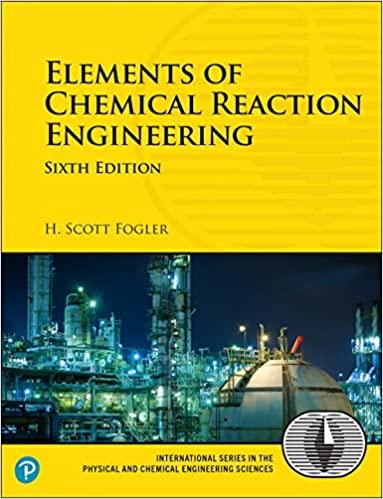Compound A undergoes a reversible isomerization reaction, A B, over a supported metal catalyst. Under pertinent
Question:
Compound A undergoes a reversible isomerization reaction, A ⇄ B, over a supported metal catalyst. Under pertinent conditions, A and B are liquid, miscible, and of nearly identical density; the equilibrium constant for the reaction (in concentration units) is 5.8. In a fixed-bed iso-thermal flow reactor in which backmixing is negligible (i.e., plug flow), a feed of pure A undergoes a net conversion to B of 55%. The reaction is elementary. If a second, identical flow reactor at the same temperature is placed downstream from the first, what overall conversion of A would you expect if:
a. The reactors are directly connected in series?
b. The products from the first reactor are separated by appropriate processing and only the unconverted A is fed to the second reactor?
Step by Step Answer:






